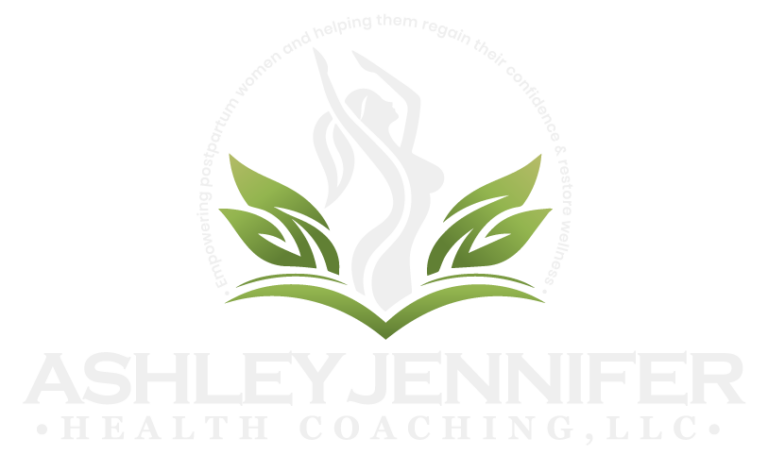Let me start by saying this: if you’re in the thick of postpartum and wondering why you don’t feel like yourself, you’re not alone and you’re not crazy.
After giving birth to my first child, I was navigating two of the most emotional life events at the same time. I had just lost my father, and only six days later, became a mother. The grief was consuming. The exhaustion was relentless. And the pressure to “bounce back” felt impossible.
At first, I brushed off what I was feeling as the “baby blues.” But something deeper was happening and I want to talk about it openly in case you’re feeling the same way.
The Signs That Made Me Realize It Was More Than Just Baby Blues
It’s easy to downplay your own symptoms when you’re surrounded by people telling you “this is just part of motherhood.” But for me, there were red flags I couldn’t ignore:
- A constant lack of motivation
- Mood swings and intense anger
- Deep sadness that wouldn’t go away
Grief and postpartum hit me like a tidal wave, and I finally reached out for help. Therapy helped me process everything, and step by step, I started to find my way back. I slowly returned to the things that made me feel like me like going to Pure Barre classes, catching up with friends, and getting out of the house with my baby.
But here’s what I wish I had sooner: someone checking in on me. Just a phone call. A “how are you, really?” from someone who meant it. That small act of care could’ve eased so much of the isolation I felt in those early weeks.
The Misconception I Believed and Why It Was So Harmful
I used to think everyone got the baby blues and they just… went away. That’s the message I got from social media and even other moms: feel off for a few days, cry it out, and you’re good.
But I’ve learned this: baby blues are common but postpartum depression (PPD) is not something to wait out. It’s deeper, more persistent, and can become dangerous if left unaddressed.
Baby Blues vs PPD: What Most Moms Don’t Know
So how do you tell the difference?
- Baby Blues: Affects up to 80% of new moms. It usually starts within a few days after birth and goes away on its own within 2 weeks. You might feel weepy, overwhelmed, or moody—but it’s generally manageable.
- Postpartum Depression (PPD): Affects 1 in 7 women. It lingers beyond the first few weeks and can intensify over time. If untreated, it can impact your well-being and your baby’s, making everyday tasks feel impossible.
Only a licensed professional can give you a proper diagnosis, so if something feels off, please, don’t wait. Seek help.
Why Hormones Hit So Hard After Birth
After birth, your hormones don’t just calm down. They crash.
Estrogen and progesterone—two hormones that play a major role in mood regulation—drop significantly after delivery. On top of that, your thyroid hormones might shift, leading to fatigue, mood swings, and mental fog.
It can take up to two years for hormones to fully regulate. That’s why prioritizing mental health and physical wellness postpartum is not a luxury—it’s essential.
Holistic Tools That Helped Me Heal
Not everything requires a prescription. Here are a few simple things that made a real difference in my healing journey:
- Gratitude journaling: Writing 3 small wins or gratitudes each day helped shift my mindset
- Support groups: I found free groups for moms and connected with others who got it
- Exercise: On the days I couldn’t make it to Pure Barre, I’d do light movement at home
Even 10 minutes of movement before baby wakes up can shift your entire day.
The Power of Mindset (even when you’re sleep-deprived)
It’s easy to spiral into worst-case thinking when you’re exhausted and overwhelmed. I’ve been there.
But what I’ve learned is that your mindset truly shapes your day. It doesn’t mean forcing fake positivity—but it does mean choosing a kinder inner voice. And like any muscle, it gets stronger with practice.
What If You’re Not Sure What You’re Feeling?
If you’re unsure whether what you’re experiencing is baby blues or something deeper, the first step is simple: talk to your healthcare provider.
From there, think about your support system. Who can you call? Are there local or online mom groups? Could a postpartum health coach offer structure and accountability?
What a Real Support System Looks Like (even if you’re alone)
Support doesn’t always come from family—and that’s okay. It can look like:
- A weekly support group
- A compassionate therapist
- A postpartum health coach
- A trusted friend or mom mentor
You’d be surprised how healing it can be to connect with someone who sees you in this season.
How My Program Supports Overwhelmed Moms
That’s exactly why I created my signature program.
It was designed to walk moms through the phases of postpartum healing: from mindset and nourishment to rebuilding confidence and finding emotional support. No two journeys are the same—so this program meets each mom exactly where she is.
Inside, you’ll get personalized attention and real tools that help you reclaim your energy, mindset, and sense of self.
What to Expect in a Free Session
Your first session is always free. It’s a no-pressure space where we explore how you’re feeling right now, and where you want to be. Whether you decide to move forward or not, you’ll leave feeling heard and supported.
To the Mom Who’s Reading This and Struggling…
Please hear this:
You are not failing. You are adjusting.
You are not broken. You are healing.
And you don’t have to do this alone.
There is a version of you who feels confident, energized, and at peace—and I want to help you find her again.
Let’s Rebuild Together
If you’re ready to get the support you need (and deserve), I’d love to walk this journey with you.
💛 Book your free session today
💛 Let’s figure out what you need
💛 You don’t have to wait until you’re “better” to get help
Because healing isn’t linear and it’s never too late to start.

